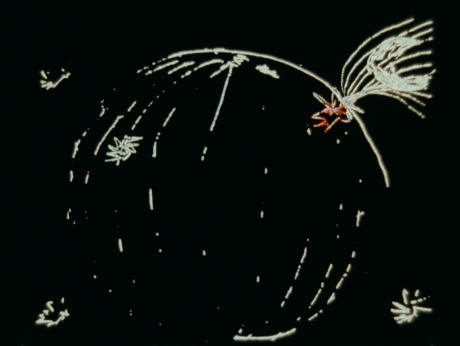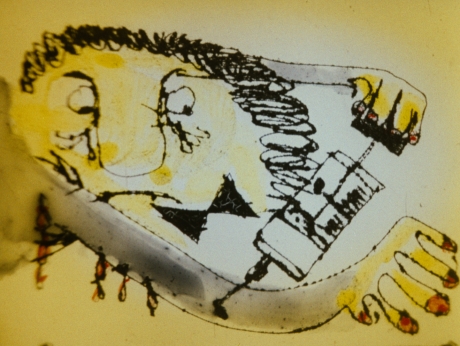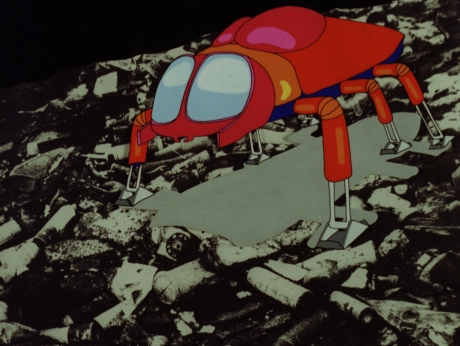
 overview
overview

 storyline
storyline
1984 was the year Julian Józef Antonisz’s ‘Polish Non-Camera Newsreel No. 6’ won both the Main Prize and the FIPRESCI Prize during the 30th International Short Film Festival held in Oberhausen. Having the chance to tour a few of Federal Republic of Germany’s cities, the director decided to record his tour using the non-camera technique. ‘Because it is his first business trip to a festival, his observations are fairly spontaneous’ - inform the commentary’s first words. ‘During the Oberhausen festival we got beer’ - that’s the first note heard from the director. Antonisz's document consists of several parts: Duisbug, Dortmund, Düsseldorf, Hannover, Hamburg, each of them opening with a historical briefing on the location read by the lector and followed by the author's personal observations, concluded with an obligatory commentary on the local beer, which, obviously unlike at home, is always available.

 comment
comment



















‘Oberhausen, Duisburg, Dortmund, Düsseldorf, Hannover, Hamburg, or a Non-Camera Coverage of a Journey to the Federal Republic of Germany’ is a further exploration of themes which derive from the ‘Polish Non-Camera Newsreel No. 6. 1983 Edition B’, released under the title ‘From the world. Cultural chronicle. Oberhausen Festival’. While the newsreel bears witness to Julian Józef Antonisz's Oberhausen Festival success, the subsequent movie conveys the artist's elaborate reflection on German reality.
As always, the work is infused with Antonisz's sense of humor drawn both from surrealism and pure nonsense: in the Ruhr he makes a note about pipes ("rura" meaning "a pipe" in Polish); while in Hamburg he notices its art house theatre chains, where ‘film-enthusiast sailors can fully experience the newest cinema releases that depict direct human relationships against a background of the problems of modern life’. While describing the German reality, Antonisz would often convey the domestic Polish reality: e.g. when presenting the way the gasoline rationing problem was solved in Düsseldorf, or how a monetary overhang was dealt with in Hannover. The whole industrial boom began with ‘Józef Kruppa-Gąsienica leaving Poland in 1905, before World War I broke out, to work for a living in West Germany and achieving success.’
The 30th ISFF Oberhausen turned out to be a huge success not only for Antonisz himself, but also for the whole Cracow Studio: the Animated Film Studio’s retrospective was awarded a FICC Special Mention Award. After two years another FICC Award was won by Antonisz's ‘A Light in a Tunnel’ (1985) during the 32nd Oberhausen ISFF for its particularly successful integration of picture and sound. An interesting fact is that the movie’s silent copy was screened, with the artist himself not only performing live on an out of tunepianoforte in front of the screen, but also enriching the performance with his own, untintelligible sounds. Jerzy Armata